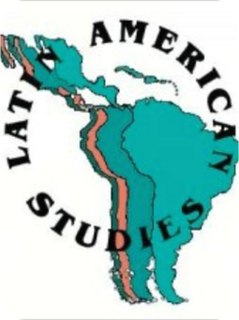
The Indian Institute of Advanced Study (IIAS) is a research institute based in Shimla, India. It was set up by the Ministry of Education, Government of India in 1964 and it started functioning from 20 October 1965.

The National Communication Association (NCA) is a not-for-profit academic association that serves scholars, teachers, and practitioners in the field of communication. Founded in 1914, NCA advances Communication as the discipline that studies all forms, modes, media, and consequences of communication through humanistic, social scientific, and aesthetic inquiry.

The University of Peshawar is a public research university located in Peshawar, Khyber Pakhtunkhwa, Pakistan. The university is one of the oldest universities in the province, and is ranked as one of the highest rated universities in the country.

The Indian Institute of Forest Management (IIFM) is an autonomous, public institute of sectoral management located in Bhopal, Madhya Pradesh, India, established by the Ministry of Environment, Forest and Climate Change, Government of India with financial assistance from the Swedish International Development Cooperation Agency (SIDA) and course assistance from the Indian Institute of Management Ahmedabad. The institute's objective is to fulfill the growing need for the managerial human resource in the area of Forest, Environment, and Natural resources Management and allied sectors. The institute is headed by a director selected and appointed by the Ministry of Environment, Forest and Climate Change, Government of India.

The Air War College (AWC) is the senior Professional Military Education (PME) school of the U.S. Air Force. A part of the United States Air Force's Air University, AWC emphasizes the employment of air, space, and cyberspace in joint operations. Headquartered at Maxwell Air Force Base in Montgomery, Alabama, its higher headquarters is the Air Education and Training Command (AETC) at Randolph Air Force Base in San Antonio, Texas. It is one of six war colleges within the U.S. Department of Defense's Joint Professional Military Education (JPME) Phase II Education Program for commissioned officers.

Sant Longowal Institute of Engineering and Technology is a Govt. of India established (1989) deemed university under Section 3 of the UGC Act 1956 for higher education and research in India. It is well known as "Modern Gurukul" of Tech Education due to lush green campus situated on 451 acres in the Longowal, Sangrur district, Punjab, India. SLIET is fully funded by the Ministry of Human Resource Development, and is an autonomous body controlled by the SLIET Society. Institute has been set up in the memory of Late Sh. Harchand Singh ji Longowal under Rajiv Longowal Punjab accord. Educational opportunities include technical and practical training in the fields of engineering and technology. The students and alumni of SLIET are informally referred to as SLIETians.
The National Humanities Center (NHC) is an independent institute for advanced study in the humanities. The NHC operates as a privately incorporated nonprofit and is not part of any university or federal agency. The center was planned under the auspices of the American Academy of Arts and Sciences, which saw a need for substantial support for academic research in the humanities, and began operations in 1978.
The National Center for Ecological Analysis and Synthesis (NCEAS) is a research center at the University of California, Santa Barbara, in Santa Barbara, California. Better known by its acronym, NCEAS opened in May 1995. Funding for NCEAS is diverse and includes supporters such as the U.S. National Science Foundation, the State of California, and the University of California, Santa Barbara.
The Franklin Humanities Institute (FHI) is an interdisciplinary humanities center at Duke University dedicated to supporting humanities, arts, and social science research and teaching. The institute's mission is to encourage humanistic inquiry throughout Duke campus and to raise public awareness of the humanities. Named after the prominent African American historian and civil rights activist John Hope Franklin, who retired from Duke in 1985 as the James B. Duke professor of History, the institute has also made a commitment to promote scholarship that enhances social equity, especially through research on race and ethnicity.

University Center for International Studies (UCIS), the first center of its kind when created in 1968, provides a university-wide integration of international scholarship at the University of Pittsburgh. This center provides a university-wide framework for students, faculty, other scholars who have an interest in international studies. UCIS encompasses centers for area studies and centers on topical specializations in international studies. It coordinates international education curricula and provides support services such as the Study Abroad Program, which helps students study abroad during their college experience. It does not offer degrees but awards certificates of attainment to degree candidates in the University's schools. Carl Beck served as the first director of the UCIS.

The Kennan Institute of the Woodrow Wilson International Center for Scholars was founded in 1974 to carry out studies of the Soviet Union (Sovietology), and subsequently of post-Soviet Russia and other post-Soviet states. The Institute is widely regarded as the foremost institute for advanced Russia studies in the United States.
The National Resource Center (NRC) Program of the U.S. Department of Education provides funding grants to American universities to establish, strengthen, and operate language and area or international studies centers that will be national resources for teaching any modern foreign language.
The Pembroke Center for Teaching and Research on Women was established in 1981 at Brown University, Providence, Rhode Island, as an interdisciplinary research center on gender. In addition to research, the Center is home to the undergraduate Gender and Sexuality Studies concentration and archives that preserve the history of women at Brown and the intellectual history of feminist theory. The Center's director is Suzanne Stewart-Steinberg, professor of comparative literature, who succeeded anthropologist Kay Warren in July 2014.

University of Florida Center for African Studies (CAS) is a center within of the College of Liberal Arts and Sciences (CLAS) at the University of Florida (UF). The Center provides teaching and research into issues of African languages, humanities, social sciences, agriculture, business, engineering, education, fine arts, environmental studies, conservation, journalism, and law.
Stanford University has many centers and institutes dedicated to the study of various specific topics. These centers and institutes may be within a department, within a school but across departments, an independent laboratory, institute or center reporting directly to the Dean of Research and outside any school, or semi-independent of the University itself.

The Center for Global Initiatives (CGI) is a research center at the University of North Carolina at Chapel Hill. It is part of the National Resource Center program of the U.S. Department of Education. CGI offers grants and scholarships to students and faculty to travel abroad, complete internships, and develop internationally focused courses. CGI also serves as the home to the Fulbright Program at UNC-Chapel Hill.

The MIT Center for International Studies (CIS) is an academic research center at the Massachusetts Institute of Technology. It sponsors work focusing on international relations, security studies, international migration, human rights and justice, political economy and technology policy. The center was founded in 1951.

The University of Pittsburgh’s Center for Latin American Studies, commonly known as CLAS, is a National Resource Center on Latin America. The Center, founded in 1964 as part of the university's Center for International Studies, offers undergraduate and graduate students multidisciplinary training on Latin American and Caribbean studies.

The Mortara Center for International Studies is an academic research center at Georgetown University in Washington, DC. As part of Georgetown's Edmund A. Walsh School of Foreign Service, the Mortara Center organizes and co-sponsors lectures, seminars, and conferences and provides support for research and publications on international affairs. The current Director of the Mortara Center is Professor and Chair of the Georgetown University International Theory and Research Seminar (GUITARS) Abraham L. Newman. Past Directors include Kathleen R. McNamara, John McNeill, Carol Lancaster, Charles Kupchan, and John Ikenberry. Former United States Secretary of State Madeleine Albright is the Michael and Virginia Mortara Distinguished Professor in the Practice of Diplomacy. The Mortara Center was established through a gift from the Michael and Virginia Mortara Foundation.














